 At its annual general meeting, Playback 2017, Music Canada today released The Value Gap: Its Origins, Impacts and a Made-in-Canada Approach, the first comprehensive collection of information about the Value Gap, and the solutions available to Canadian policy makers.
At its annual general meeting, Playback 2017, Music Canada today released The Value Gap: Its Origins, Impacts and a Made-in-Canada Approach, the first comprehensive collection of information about the Value Gap, and the solutions available to Canadian policy makers.
The Value Gap is defined as the significant disparity between the value of creative content that is accessed and enjoyed by consumers, and the revenues that are returned to the people and businesses who create it.
“The Value Gap challenges the livelihood and sustainability of an entire global social class, and threatens the future of Canadian culture,” says Graham Henderson, President and CEO of Music Canada. “Our creative industries and the Government of Canada need to come together to acknowledge that the problem facing our creators is real, that the landscape has dramatically changed, and that we need to adapt our rules and regulations before full-time creativity becomes a thing of the past.”
At the heart of the Value Gap for music is misapplied and outdated “safe harbour” provisions in copyright law, which result in creators having to forego copyright royalty payments to which they should be entitled, and amount to a system of subsidies to other industries.
Creators and governments around the world are taking notice, and taking action. The European Commission has pinpointed the Value Gap as the cause of a marketplace that isn’t functioning properly, and acknowledged that a legislative fix is needed. Hundreds of thousands of U.S. music creators have agreed that the safe harbour provisions in the Digital Millennium Copyright Act need to be changed.
In Canada, thousands of musicians, authors, poets, visual artists, playwrights and other members of the creative class, have urged The Honourable Mélanie Joly, Minister of Canadian Heritage, to put creators at the heart of future policy in a campaign called Focus On Creators.
The Value Gap: Its Origins, Impacts and a Made-in-Canada Approach provides important insights into how policy makers can reverse the Value Gap. For instance, the Canadian Copyright Act contains provisions that allow and, in some cases, even encourage the commercialization of creators’ work without the need for proper remuneration, undercutting one of its overarching principles: to ensure that creators receive a just reward for the use of their works.
To address these inequities, the federal government should take the following actions:
- Focus on the Effects of Safe Harbour Laws and Exceptions
The Canadian government should, like its international counterparts, review and address safe harbour laws and exceptions, and their subsequent misapplication by some technology companies, as well as the cross-subsidies that have been added to the Copyright Act.
- Canada’s Creative Industries are Asking for Meaningful Reforms
During the mandated five-year review of the Copyright Act slated to begin in late 2017, the government should review the Act for instances that allow others to commercialize creative works without properly remunerating artists, and end these cross-subsidies.
- Remove the $1.25 Million Radio Royalty Exemption
Since 1997, commercial radio stations have only been required to pay $100 in performance royalties on their first $1.25 million advertising revenue. This exemption should be eliminated. It amounts to a subsidy being paid by artists to large vertically-integrated media companies.
- Amend the Definition of Sound Recording
In the Copyright Act, recorded music is actually not considered a ‘sound recording’ (and thus not entitled to royalties) when it is included in a TV or film soundtrack. The definition should be changed to allow performers and creators of recorded music to collect royalties when music is part of a TV/film soundtrack.
The full report can be downloaded at this link.
Music Canada demande au gouvernement du Canada de prendre des mesures pour remédier à l’écart de valeur dans un nouveau rapport pas comme les autres
Dans le cadre de son assemblée générale annuelle intitulée Playback 2017, Music Canada a annoncé aujourd’hui le lancement de L’Écart de valeur : ses origines, ses impacts et une démarche faite au Canada, le premier recueil de renseignements exhaustifs sur l’écart de valeur et les solutions qui sont à la portée des décideurs politiques canadiens pour y remédier.
L’écart de valeur se définit comme l’importante disparité qui existe entre la valeur du contenu créatif que les consommateurs consultent et apprécient, et les revenus qui sont réacheminés vers les personnes et les entreprises qui l’ont créé.
« L’écart de valeur menace le gagne-pain et la durabilité de toute une classe sociale à travers le monde et met en péril l’avenir de la culture canadienne », soutient Graham Henderson, président et chef de la direction de Music Canada. « Nos industries créatives et le gouvernement du Canada doivent s’unir pour reconnaître que le problème auquel sont confrontés nos créateurs est bien réel, que le paysage a profondément évolué et que nous devons adapter nos règles et règlements avant que la créativité à temps plein ne devienne chose du passé. »
L’écart de valeur tient essentiellement à l’application erronée de dispositions dépassées de la législation sur le droit d’auteur en matière d’exemptions de responsabilité (les safe harbours de la loi américaine) qui forcent les créateurs à sacrifier des redevances auxquelles ils devraient avoir droit, ce qui revient à un système de subventions accordées à d’autres industries.
Les créateurs et les gouvernements du monde entier réagissent et passent à l’action. La Commission européenne a identifié l’écart de valeur comme étant la cause du dysfonctionnement du marché, et elle a reconnu qu’une correction législative s’impose. Des centaines de milliers de créateurs de musique américains s’entendent pour réclamer la modification des exemptions de responsabilité de la loi américaine sur le droit d’auteur, le Digital Millennium Copyright Act.
Au Canada, des milliers de musiciens, auteurs, poètes, artistes visuels, dramaturges et autres membres de la classe créative ont instamment prié l’honorable Mélanie Joly, ministre du Patrimoine canadien, de mettre les créateurs au cœur de la future politique culturelle dans le cadre d’une campagne nommée Pleins feux sur les créateurs.
L’Écart de valeur : ses origines, ses impacts et une démarche faite au Canada apporte un éclairage important sur les mesures que les décideurs politiques peuvent prendre pour inverser l’écart de valeur. La Loi sur le droit d’auteur du Canada, par exemple, contient des dispositions qui permettent, et même encouragent dans certains cas, la commercialisation des œuvres des créateurs sans l’obligation de leur accorder une rémunération équitable, ce qui va à l’encontre d’un de ses principes fondamentaux : assurer que les créateurs reçoivent une juste récompense pour l’utilisation de leurs œuvres.
Le gouvernement fédéral devrait prendre les mesures suivantes pour remédier à ces inégalités :
- Se concentrer sur les effets des lois et des exceptions en matière d’exemption de responsabilité
À l’instar de ses homologues internationaux, le gouvernement du Canada devrait examiner et réviser les lois et exceptions en matière d’exonération de responsabilité, leur application erronée par certaines entreprises spécialisées dans la technologue et les pratiques d’interfinancement qui ont été ajoutées à la Loi sur le droit d’auteur.
- Les industries créatives canadiennes réclament des réformes authentiques
Lors de l’examen quinquennal de la Loi sur le droit d’auteur qui doit débuter à la fin de 2017, le gouvernement devrait étudier l’ensemble des dispositions permettant à des tiers de commercialiser des œuvres créatives sans rémunérer équitablement les artistes, et ce, en plus de mettre fin à l’interfinancement.
- Éliminer l’exemption de redevances de 1,25 million $ de la radio commerciale
Depuis 1997, les stations de radio commerciales ne versent qu’une redevance nominale de 100 $ sur la partie de leurs recettes publicitaires annuelles qui ne dépasse pas 1,25 million $. Cette exemption devrait être éliminée. Elle revient à une subvention faite par les artistes à de vastes entreprises médiatiques verticalement intégrées.
- Modifier la définition d’« enregistrement sonore »
Dans la Loi sur le droit d’auteur, la musique enregistrée n’est pas reconnue comme étant un « enregistrement sonore » (et n’ouvre donc pas droit à rémunération) lorsqu’elle fait partie de la bande sonore d’une œuvre télévisuelle ou cinématographique. La définition devrait être modifiée pour permettre aux artistes-interprètes et aux créateurs de musique enregistrée de toucher des redevances lorsque leur musique fait partie de la bande sonore d’une œuvre télévisuelle ou cinématographique.
On peut télécharger le rapport intégral à ce lien.
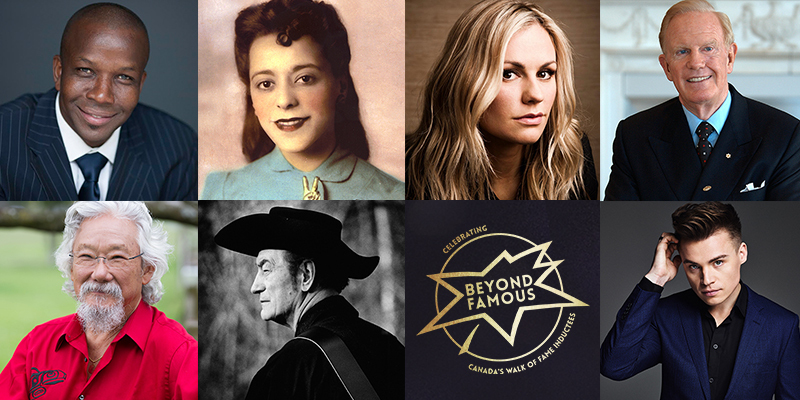
















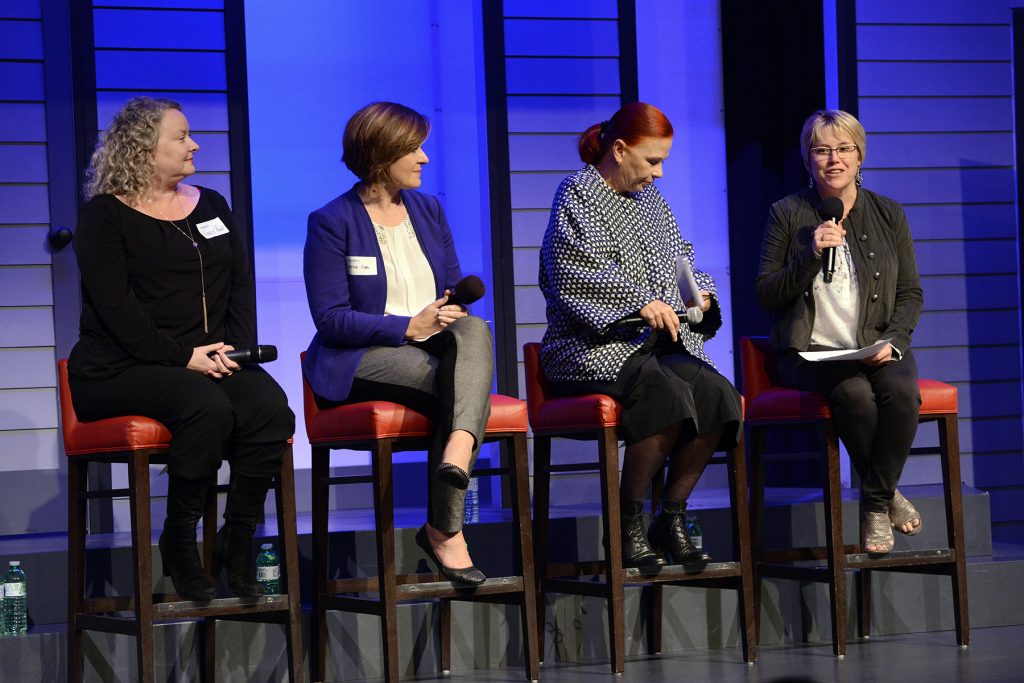






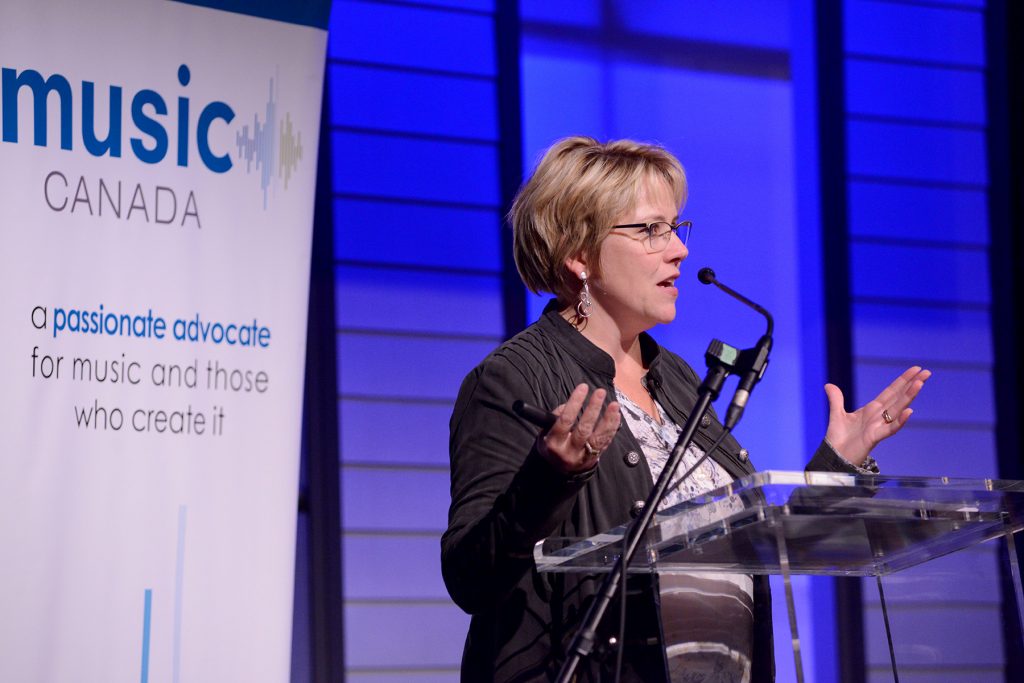
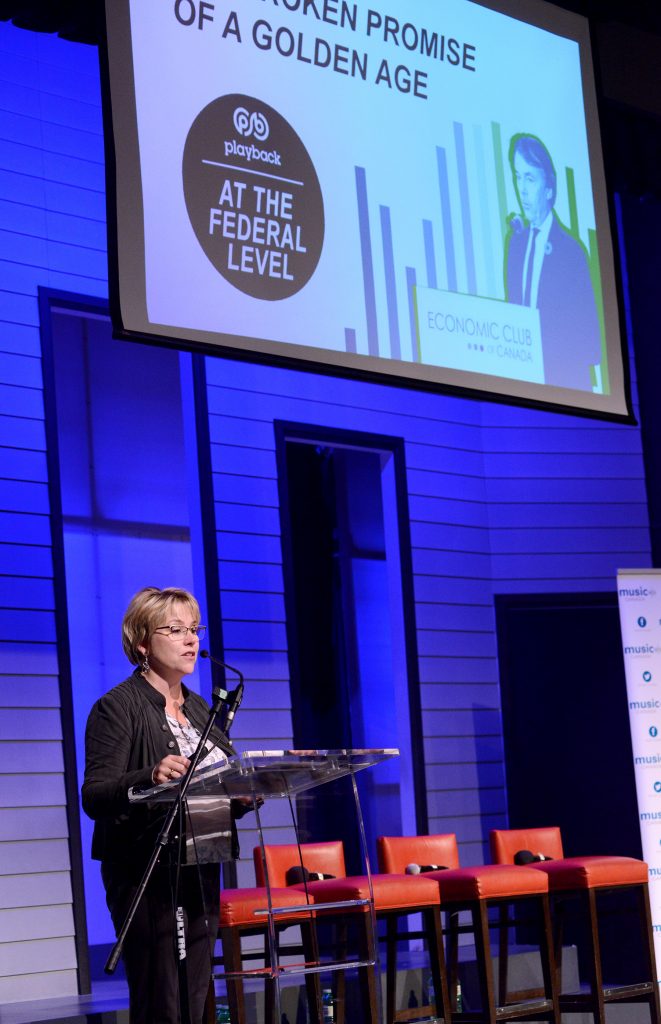




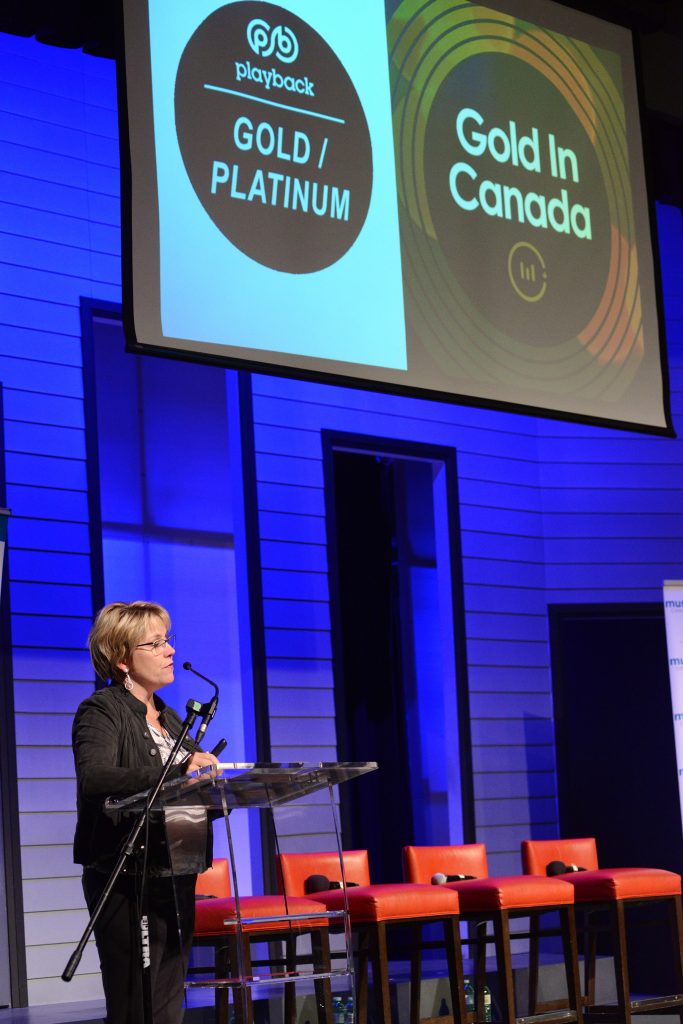
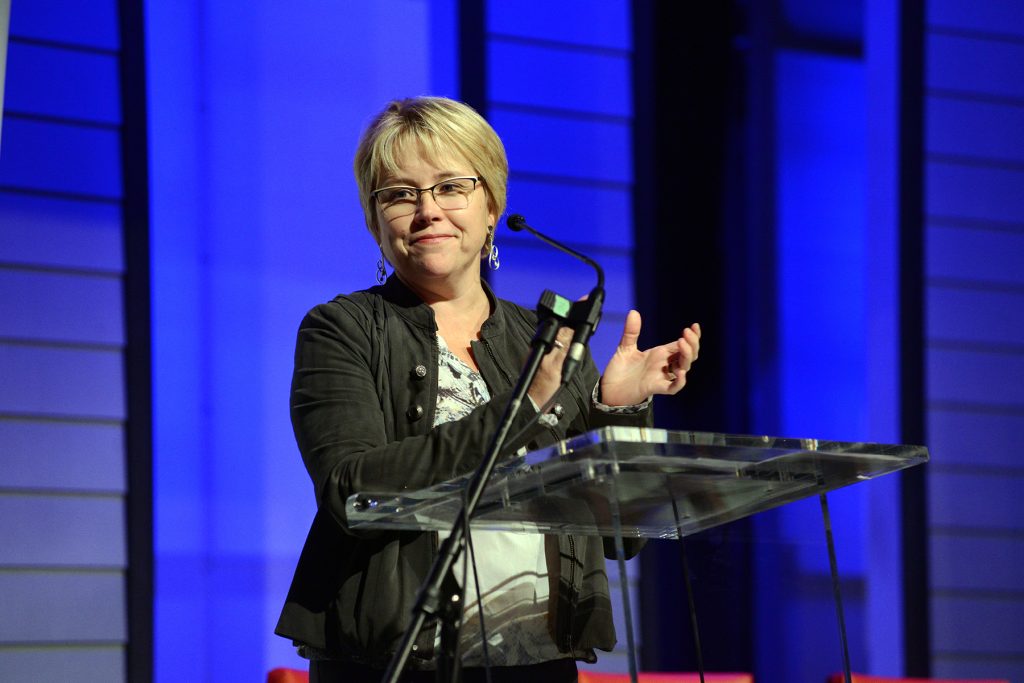








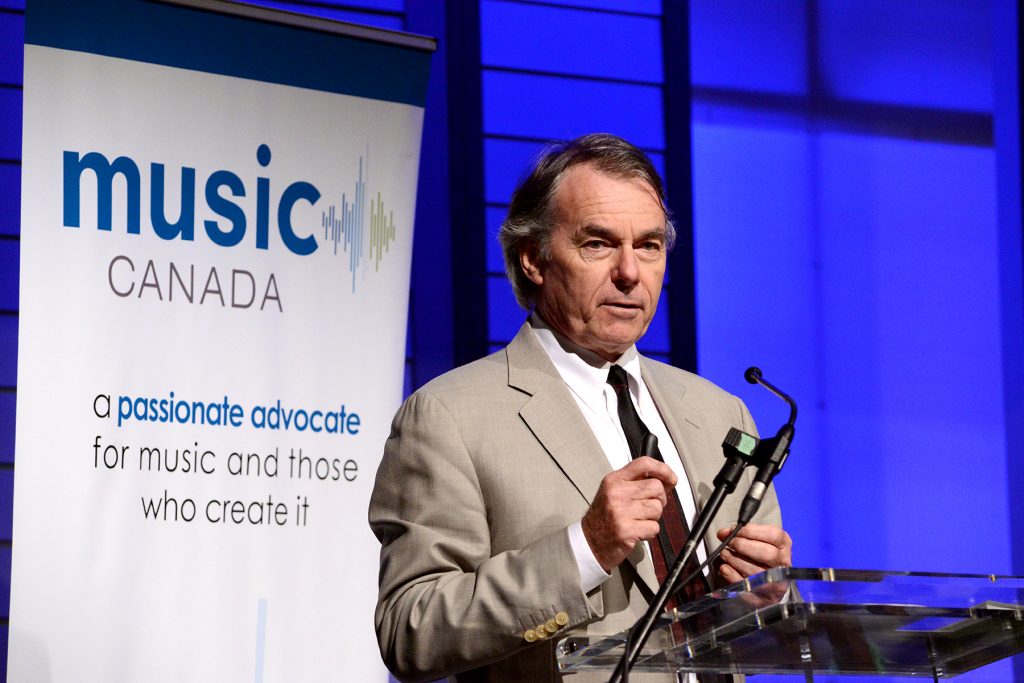
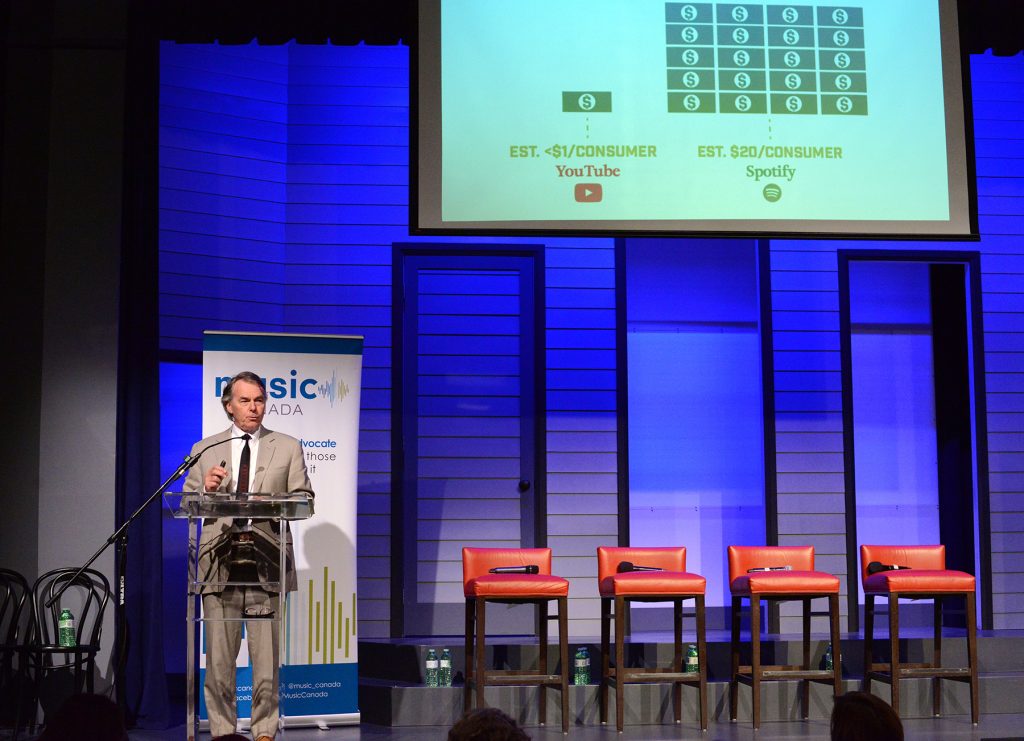
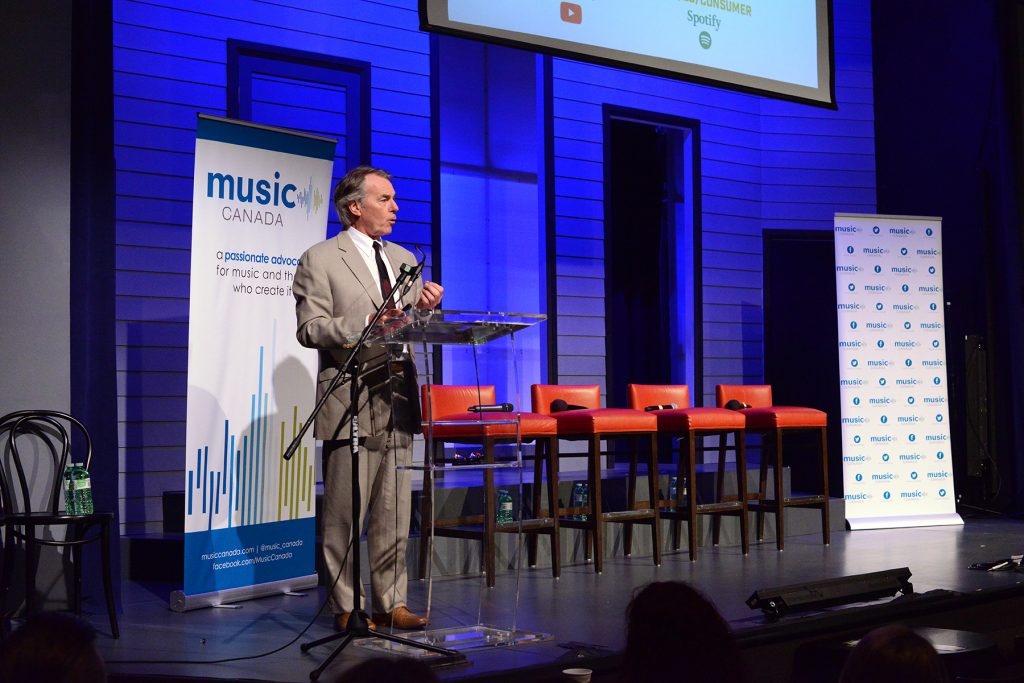

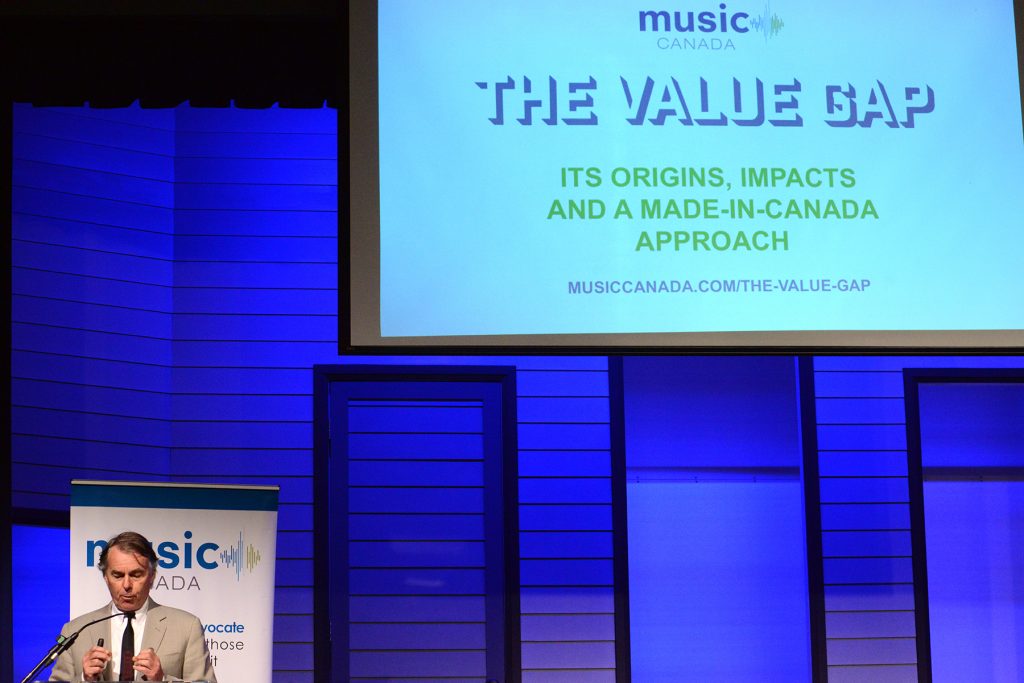
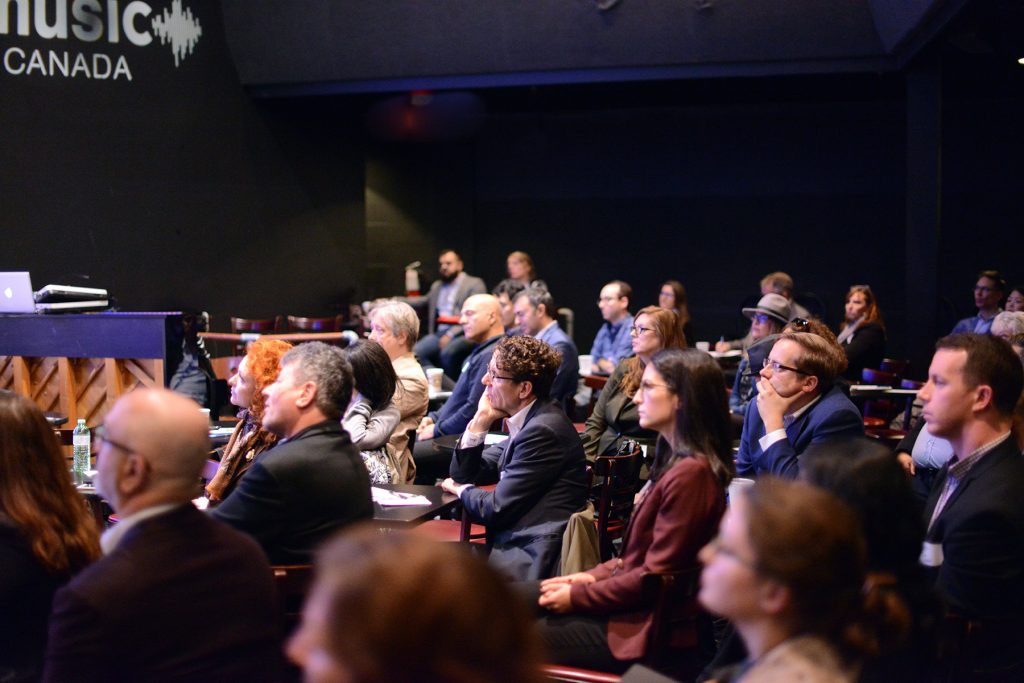

Music Canada